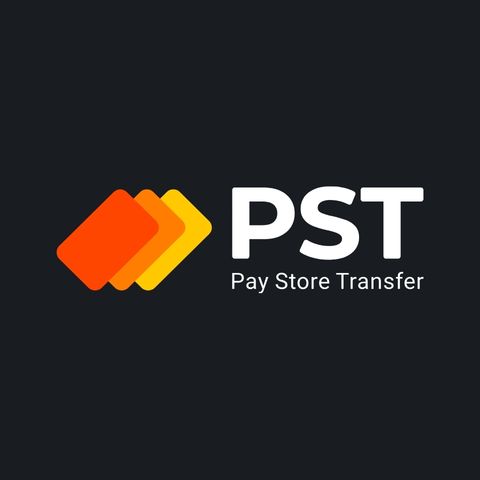Virtual card is a digital payment card that provides a unique card number and security code for online or contactless transactions to protect against cloning, identity fraud, and theft.
Virtual cards give businesses more control over spending with set limits and restrictions, as well as offering flexibility and convenience for online purchases and payments to vendors.
Geekflare has researched and compiled a list of the top virtual card providers for business spending based on key features such as security, integration, and expense management.
- 1. Wallester – Best for Corporate Expense Card
- 2. PayDo – Offers Corporate Physical and Virtual Cards
- 3. Moss – Best to Streamline Expense Reports
- 4. Combo Cards – Best for Advertising Business
- 5. Revolut – Best for Disposable Card
- 6. Wise – Low Currency Conversion Fees
- 7. Airwallex – Best Inbuilt Global Bank Account
- 8. Intergiro – Best for Flexible Card Programs
- 9. PST – Best for Prepaid Card Solutions
- 10. Pleo – Best for Managing Employee Expenses
- 11. Karta – Inbuilt Fraud Protection
- 12. Emburse – Best for Spend & Travel Management
- 13. Netspend – Best for Everyday Business Spending
- 14. Privacy – Best for Secure Online Purchases
- Show less
You can trust Geekflare
At Geekflare, trust and transparency are paramount. Our team of experts, with over 185 years of combined experience in business and technology, tests and reviews software, ensuring our ratings and awards are unbiased and reliable. Learn how we test.

1. Wallester
Best for Corporate Expense Card
- IntegrationQuickBooks, Xero
- CashbackYes
- Virtual Card TypeVISA Debit
About Wallester
Wallester, launched in 2018, provides single-use virtual cards for purchases with spending limits and real-time expense tracking. It comes with a fraud monitoring feature that complies with KYC and AML regulations to ensure the safe and legal use of Wallester’s services.
Wallester lets you tokenise various card types for convenient use in digital wallets such as Apple Pay, Google Pay, and Samsung Pay. Their customisable white-label service is great for businesses looking to launch their own credit cards.
Wallester offers different pricing plans for virtual cards, with a free plan for up to 300 virtual cards. Paid plans include up to 3,000 virtual cards for €199/month and 15,000 virtual cards for €999/month.
Wallester Features
High-level security features, including PIN protection, instant card freezing, and transaction notifications.
Issue both virtual and physical cards instantly for immediate access.
Store and manage invoices digitally.
Integrates with accounting systems like QuickBooks and Xero for automated expense reporting.
Mobile app is available on iOS and Android.
Wallester Pros/Cons
Upto 300 virtual cards for free
User-friendly interface
Customisable spending limits
Automated data export to Excel, CSV, PDF
Only offers Visa cards
Additional charges for low-value transactions

2. PayDo
Offers Corporate Physical and Virtual Cards
- IntegrationAPI
- CashbackNo
- Virtual Card TypeVisa
About PayDo
PayDo offers flexible business cards for corporate usage. Besides virtual cards, it provides physical cards with unlimited issuance. You can use these cards to buy software for your company, get software subscriptions, show online and social media ads, and cover employee expenses.
Getting a PayDo card is super easy. All you have to do is fill in the precheck and verify your company. Then, you can order the virtual cards according to your needs and, after instant issuance, start using the cards for company expenses.
PayDo costs only 1€ for virtual card issuance and does not have any monthly fees or transaction charges. However, it has a 3% markup rate for card purchases that are not in EUR. For ATM withdrawals within the European Economic Area (EEA), PayDo charges 2€ + 1%, and for non-EEA, the charge becomes 2€ + 3%.
PayDo Features
Add PayDo cards with Apple Pay and Google Pay.
Additional authentication to verify every transaction.
Protected card data to keep card details private and secure.
Dashboard for spend monitoring and financial management.
Set spending limits for individual employees.
PayDo Pros/Cons
3DS protocol for enhanced security.
Payment failure reason is displayed on the dashboard.
Visa-powered cards with wide acceptance.
Does not support MasterCard.
Dispute resolution costs 30€.

3. Moss
Best to Streamline Expense Reports
- IntegrationAccounting Tools
- CashbackYes
- Virtual Card TypeMastercard Debit
About Moss
Moss, founded in 2019 in Berlin, offers various cards designed to enhance corporate expense management, providing employees and companies with budget cards, merchant-specific subscription cards, and virtual credit options for smooth transactions.
Moss virtual cards offer real-time transaction tracking, automatic receipt matching, and integration with Xero. They are also an official DATEV marketplace partner, helping tax consultants improve their accounting systems and streamline bookkeeping tasks.
Moreover, Moss Credit goes up to a £2.5 million spending limit and a 60-day payment window.
Moss offers unlimited virtual cards with built-in spend approvals and controls, rule-based accounting automation and real-time visibility of each transaction within its platform. You can inquire about these virtual card’s pricing by directly contacting Moss’s support team.
Moss Features
Supports OCR technology to capture receipt details
Automated receipt collection and matching
Track every payment by setting up automated reminders via Slack or email
Offers 3D Secure, biometric identification, and GDPR compliance
Moss Pros/Cons
Instant card issuance
Advanced expense tracking and management tools
Efficient invoice management
Automate expense reimbursement and management
Pricing not publicly available
2% supercharge on international transactions

4. Combo Cards
Best for Advertising Business
- IntegrationAccounting Tools
- CashbackNo
- Virtual Card Type46 BINs, Visa, Mastercard
About Combo Cards
Combo Cards are virtual cards that offer a secure and flexible solution for managing expenses, advertising, and business purchases. They provide bank-level security, ease of use, and efficient operations, with features such as 3DS protection and a personalised Telegram bot for OTP codes.
Combo cards let you track expenses, monitor trends, control account balance, and generate finance reports with ease. Plus, you can add funds from AdСombo, wire transfer, or USDT and use them for marketing campaigns on various platforms like Facebook, Google Ads, TikTok, and others.
Combo Cards can help you invite collaborators, assign roles, and distribute budgets effectively.
Combo Card’s starting price is $0, with a minimal 3% commission on top-ups. Plus, you can deposit up to $5000 with no commissions within 14 days after signing up.
Combo Cards Features
Generates detailed financial reports and insights
Low fees for deposits, withdrawals, and declined transactions, with rates such as 3% for USDT deposits and $0.5 for declined payments
Funds can be deposited via crypto transfers, wire transfers, or affiliate networks
Cards can be issued in multiple regions, including the USA, Europe, and Asia Pacific
Combo Cards Pros/Cons
Role-based access for teams
Low commissions on replenishment
Customisable spending limits and auto-top-up feature
3DS support in various currencies, including USD, EUR, and GBP
Declined payments are charged at $0 – $0.5
Requires a $50 deposit for card issuance

5. Revolut
Best for Disposable Card
- IntegrationAccounting Tools
- CashbackNo
- Virtual Card TypeVisa, Mastercard Debit
About Revolut
Revolut started in 2015, offers two types of virtual cards–disposable debit cards and multi-use debit cards. These disposable cards regenerate with a new, unique card number after each transaction, ensuring merchants only have access to a temporary number. This feature significantly reduces the risk of unauthorised charges and online fraud.
Revolut allows users to set a spending limit, lock cards to specific merchants, and track expenses in real-time. Not to mention, these cards can be linked to mobile wallets like Google and Apple Pay easily.
Revolut offers three plans – Standard, Premium, and Metal. The Standard plan is free and includes physical and virtual cards, as well as currency exchange. The Premium plan costs £7.99 per month and includes card customisation and other perks, while the Metal plan costs £14.99 per month and includes free cash withdrawals, accounts for under 18s, express card delivery, and a 4.25% APY.
Revolut Features
Designed specifically for single-use transactions.
Disposable virtual cards are available without any additional fees for Premium and Metal account holders.
Revolut Pros/Cons
Instant card generation
Mobile wallet integration
Includes purchase protection up to £2,500 annually
Freeze, unfreeze, and control spending limits
Not for recurring payments
Inactivity disables card

6. Wise
Low Currency Conversion Fees
- IntegrationAPI
- CashbackNo
- Virtual Card TypeVisa
About Wise
Whether you are a traveller or an eCommerce shopper who wants to secure transactions without sharing their financial details with everyone, Wise lets you spend worry-free using its virtual debit card.
You can add money to this card without fees by sending it using your bank account. It lets you shop contactless anywhere in the world. Since the card number differs from your physical card number, it makes your purchases more secure. You can even use the free Wise app to convert the currencies you hold in your account and spend in international shops.
This virtual card is free for all Wise personal and business account holders, except for customers in the US.
Wise Features
Supports Apple Pay, Google Pay, Garmin Pay, Samsung Pay, and Fitbit Pay.
Use different virtual debit cards for different purposes.
Freeze the virtual card after transactions to avoid account compromise.
Low currency conversion fees and currency exchange at the mid-market rate.
Instant card details change if you think the card has been compromised.
Wise Pros/Cons
Authorised by the UK Financial Conduct Authority
Available in 30+ countries.
Lets you own up to 3 virtual cards.
Limited country support.
Toll-free phone support not available outside the US.

7. Airwallex
Best Inbuilt Global Bank Account
- IntegrationXero, QuickBooks
- CashbackYes
- Virtual Card TypeVisa Debit
About Airwallex
Airwallex offers virtual cards for businesses to easily create and manage multiple virtual cards for online purchases, subscriptions, and recurring payments.
With AirWallex virtual cards, you can open domestic and foreign currency accounts in minutes and bypass the traditional red tape and paperwork associated with bank branches.
AirWallex comes with cost-effective services as it charges no account opening fees, maintenance charges, or minimum transaction requirements. Moreover, in terms of security, it employs end-to-end encryption and biometric identification along with protocols like PCI DSS, SOC1, and SOC2.
Airwallex allows businesses to easily create employee and company cards. For pricing information, you can contact their sales or support team directly.
Airwallex Features
Conduct foreign exchange transactions at competitive interbank rates.
Batch payments to up to 1,000 recipients at once.
Flexible APIs to automate financial workflows, including international payments, fund transfers, and currency conversions.
Airwallex Pros/Cons
Competitive FX rates
Easy online application and management
No setup or monthly maintenance fees
Open accounts with local details in 12 countries
Features and fees vary by region
No ATM withdrawal feature

8. Intergiro
Best for Flexible Card Programs
- IntegrationAccounting Tools
- CashbackYes
- Virtual Card TypeVisa, MasterCard, American Express
About Intergiro
Intergiro offers secure and encrypted virtual cards with real-time spend monitoring tools for finance teams to track transactions and prevent unauthorised activities.
Businesses can use Intergiro virtual cards to pay for goods and services like airline tickets, hotel bookings, and car rentals from every merchant that accepts Visa, MasterCard, or American Express.
Intergiro further offers easy access to team members and integrates with Apple Pay and Google Pay for easy and secure payments.
Intergiro offers three pricing plans, including a “Starter” plan for €9/month, a “Growth” plan for €49/month with no thresholds on outbound euro payments, and an “Enterprise” plan that can be customised to specific needs.
Intergiro Features
Easy reconciliation
Virtual cards use unique numbers for each transaction
Advanced security protocols, including dynamic CVV and fraud detection
Intergiro Pros/Cons
Low service fee
3DS support and OTP codes for safe transactions
Employee spending controls
Flexibility to freeze and cancel cards
Complex API setup
Limited to EU market

9. PST
Best for Prepaid Card Solutions
- IntegrationAccounting and Payroll Tools
- CashbackYes
- Virtual Card Type22 BINs, VISA and Mastercard Debit
About PST
PST virtual cards are instantly issued and come with security features like 3D-Secure and unique Bank Identification Numbers (BINs). They are cost-effective for businesses because they charge 0% for transactions, declined payments, and withdrawals, except a 3% deposit fee. Moreover, these cards can be topped up using cryptocurrency, including BTC and USDT.
PST lets you connect with Telegram for timely updates to improve user experience. It supports deposit issuance, which ensures scalability for growing businesses. You get various budget and role management tools like team functions, spending limits, instant transfers, financial reports, and role-based access control. Plus, they have a referral program too, which lets you earn up to 90% of profit.
PST offers various VISA cards at different prices. The Ultima card costs $7 for a virtual card. For a Facebook ad card that costs $10/month, you’ll be charged a $0.50 transaction fee and a 2.9% deposit fee. The Google Ads virtual card costs $10/month and comes at a $0 transaction fee and a 6% deposit fee.
For a universal advertisement card, PST charged a monthly fee of $10, a $0 transaction fee, and a 6% deposit fee.
PST Features
Supports 22 unique BINs from US and EU banks.
Each virtual card issued also has a physical counterpart.
Competitive tariffs with card issuance fees starting at $10.
Set roles, make budgets, and track expenses in real-time.
PST Pros/Cons
Convenient top-up options
Easy employee role management
3% cashback on purchases
No initial document verification
No role-based access for teams
Waiting list for access

10. Pleo
Best for Managing Employee Expenses
- IntegrationXero, QuickBooks, NetSuite
- CashbackNo
- Virtual Card TypePrePaid
About Pleo
Pleo virtual cards focus on employee expenditures and offer individual spending limits as well as real-time transaction notifications. In case of suspicious activity, administrators can issue, freeze, or cancel cards with just a few clicks.
Pleo is a convenient solution for managing travel expenses, as it helps calculate mileage, track invoices, capture receipts, and ensure compliance with company policies. The cards are issued by Mastercard and protected by various security standards and regulations such as PCI DSS and GDPR.
Pleo offers three different plans for their services: a free “Starter plan” for up to three users, an “Essential plan” priced at £39/month, and an “Advanced plan” priced at £89/month, all billed annually.
Pleo Features
Offers physical, temporary, virtual, and vendor cards.
Submit, approve, and process self-funded expenses within the app.
Integrate with over 50 accounting systems, including QuickBooks and NetSuite.
Automatically matches receipts from email inboxes to corresponding expenses.
Pleo Pros/Cons
Instant account setup
Adheres to FSA and PSI regulations
Mileage and fuel cost calculations
Effective subscription management
Limited overdraft availability
Dependency on digital receipts

11. Karta
Inbuilt Fraud Protection
- IntegrationERP Tools, API
- CashbackNo
- Virtual Card TypeVisa Debit
About Karta
Karta offers a powerful solution for managing corporate expenses with its smart virtual credit cards. These cards come with built-in fraud protection and can be tailored to specific expense levels and categories.
Each Karta virtual card can be fine-tuned with filters like amount, category, or time to avoid overspending. Plus, you can even create single-use cards, which keep company card details private and reduce any risk of fraud.
Karta virtual cards further collaborates with Visa’s Fintech Fast Track Program to expand its services using Visa’s worldwide payment network. You can use these cards across major platforms like Google Ads, Meta, Taboola, and TikTok and can even link them to specific vendors or services. For better security, you can use tokenisation to generate unique, randomly generated codes for each purchase.
Karta cards let you complete payments, create specific budgets, and collaborate with your team, all in one place. You can contact the administrator for more details on their pricing.
Karta Features
3D Secure technology and multi-factor authentication to verify user identity.
Lock, cancel, and reissue cards instantly through the Karta dashboard.
Integrates with major payment processing solutions like Stripe.
Adheres to major financial regulations and standards, including PCI-DSS.
Monitors all transactions with an advanced analytics engine.
Karta Pros/Cons
Detailed monitoring of all card transactions
Detailed employee training resources
Advanced encryption and tokenisation methods
Automates the chargeback process
Initial setup can be complex
Potential integration challenges

12. Emburse
Best for Spend & Travel Management
- IntegrationAccounting and ERP Tools
- CashbackNo
- Virtual Card TypeVisa, Mastercard Debit
About Emburse
Emburse virtual cards simplify spending and travel management for businesses with features like flexible spending rules, mobile receipt capture, and automatic expense categorisation.
Emburse features intelligent controls to prevent policy violations and surface anomalies, ensuring every expense complies with company policies.
Emburse’s real-time expense management feature offers immediate visibility into all transactions. It supports a strong control mechanism through pre-approval and policy controls such as spending limits and merchant category restrictions.
Emburse integrates with various tools such as CRM, HR, and productivity tools to track important data for businesses, including subscriptions, projects, clients, and tradeshows, with unlimited custom fields.
Emburse offers its virtual cards and expense management solutions in a single package. You can either take a demo or get over a quick call to learn more about their pricing plans.
Emburse Features
Unified platform that integrates with ERP, PNR, and TMC systems.
Automatically enforces travel policies and compliance.
Synchronises travel and expense data across mobile devices.
Captures expense details at the point of transaction.
Emburse Pros/Cons
Real-time expense tracking
Automated policy compliance
Pre-approval process
Advanced fraud detection features
Crisp User interface
May need frequent updates
Limited customer support

13. Netspend
Best for Everyday Business Spending
- IntegrationPayroll and Accounting Tools
- CashbackYes
- Virtual Card TypeVisa Prepaid
About Netspend
Netspend prepaid card is designed to simplify financial management for small business owners. It has no minimum balance requirement or activation fee and helps separate business and personal expenses for clear financial records and easier tax preparation.
To make a secure online purchase, you can use a temporary virtual account number generated through the online account center linked to your Netspend prepaid card.
Netspend lets business owners issue additional cards with spending limits for employees to monitor spending effectively. You can use their mobile app, which offers convenience with direct deposits, check loading, balance monitoring, and transaction alerts. Plus, its Payback Rewards program provides cashback with specific purchases like on Burger King or Walmart.
Netspend prepaid card features a manageable $9.95/month fee and provides a daily spending limit of $7,500. Additionally, users can withdraw up to $940 daily from ATMs, with a fee of $2.50 per transaction for both in-network and out-of-network ATMs.
Netspend Features
Provides cash back with payback rewards.
Pay bills directly from your account using your routing and account numbers.
Transfer funds to friends and family easily and securely through the Netspend app.
Netspend Pros/Cons
No minimum balance requirements
No activation fee
Issue additional cards with controlled spending limits for employees
Overdraft fees apply
Limited customer support

14. Privacy
Best for Secure Online Purchases
- IntegrationAccounting Tools
- CashbackYes
- Virtual Card TypeVisa or Mastercard Debit
About Privacy
Privacy cards introduced in 2014 provide safe online purchases with robust privacy and security features. These cards are linked to specific merchants, with single-use cards expiring after one transaction. Virtual cards offer customisable spending limits and can be easily stopped or deactivated, allowing users to set transaction limits to maintain control over their finances.
Privacy lets you track real-time transactions, and its extra security features hide payment details to keep them confidential. This means that you can quickly shut it down without any impact on your real bank account or credit card.
Privacy offers different plans from the Plus plan starting at $5/month for 24 cards to the Pro plan at $10/month for up to 36 new cards, with a “Premium plan” for $25/month allowing up to 60 virtual cards. All paid plans include priority support, discrete transactions, and 1% cash back on eligible purchases.
Privacy Features
Internal and third-party audits to ensure compliance with PCI-DSS standards.
Automatically declines unwanted charges from subscriptions and free trials.
Accessible via web app, mobile app, and browser extensions.
Privacy Pros/Cons
Cards lock to first merchant used
Customisable spending limits
Effective subscription management
No credit check for sign-up
US-only availability
Foreign transaction fees on the basic plan
What is a Virtual Card?
A virtual card is a digital payment card for online or contactless transactions that is usually linked to a company’s online payment solution and can be used for purchases on websites, apps, and contactless methods like Apple Pay.
Virtual cards give businesses more control over their spending by allowing payments without exposing primary card information. Businesses can customise spending limits and expiration dates for each virtual card, giving them greater financial flexibility.
Similarly, for comprehensive financial management, companies often turn to spend management software to improve their control and oversight of expenditures.
What are the benefits of using a virtual card?
Virtual cards provide benefits such as being environmentally friendly, secure, cost-effective, and allowing for easy expense monitoring, making them a practical and efficient alternative to physical cards. Here are some of the benefits of using a virtual card:
- Environment friendly: Virtual cards avoid the usage of plastic, which makes them a sustainable alternative to physical cards.
- Security: Virtual cards eliminate the physical risk of theft or loss, providing enhanced security for your financial transactions.
- Expense monitoring: Virtual cards offer detailed expense tracking and real-time reporting, making it easier to monitor and manage spending, especially for contract employees. Expense cards for contract employees provide an effective way to streamline expense management and ensure accurate tracking.
- Cost: Many virtual card providers offer low or no joining fees, making them a budget-friendly option compared to traditional credit and debit cards.
- Convenience: Virtual cards can be used easily through mobile apps or online accounts, so you can make payments quickly without having to pass around a physical credit card.
How to Select A Virtual Card Provider?
When selecting a virtual card provider, prioritise security features such as Ghost cards for fraud protection. Look for user-friendly options that integrate with banking apps, customisable spending limits, and expiration dates. Consider features like reward programs, expense management integration, multi-currency support, and customer support.
Additionally, it’s essential to understand the types of payment gateways a virtual card provider supports. The right payment gateway ensures secure, efficient transactions and can make a significant difference in how your virtual cards perform across various platforms and regions.
What is the difference between a virtual card and a credit card?
Virtual cards are digital versions of credit cards that have unique numbers, customised spending limits, and expiration dates and can only be used for online purchases.
While credit cards are physical cards with a set credit limit that can be used both online and offline, offering more flexibility for different types of transactions.
What are other types of payment cards used besides virtual cards for business spending?
When it comes to business spending, virtual cards are not the only option available. There are six different types of payment cards besides virtual cards:
- Prepaid Card: Preloaded with a specific amount of money, used to control spending.
- Debit Card: Directly linked to a bank account, used for immediate fund withdrawals.
- Disposable Card: Single-use card for secure, one-time transactions.
- Ghost Card: Card number issued to departments or vendors for specific expenses.
- Forex Card: Used for making payments in foreign currencies, often with lower fees.
- Credit Card: Allows borrowing up to a credit limit, with repayment flexibility and potential rewards.

